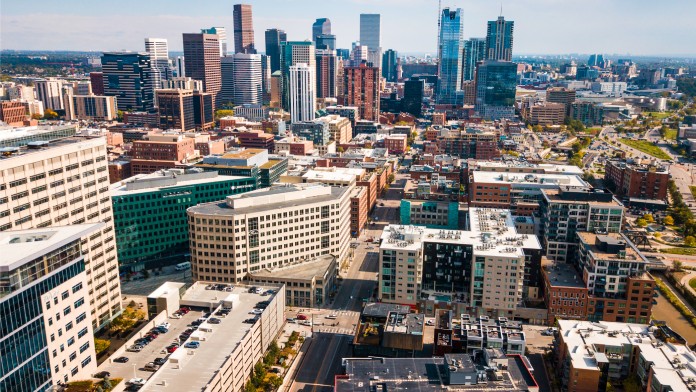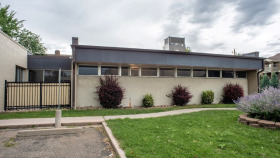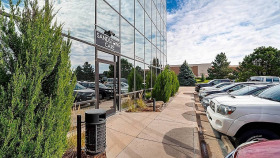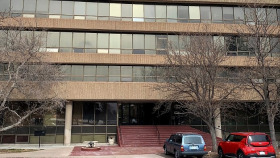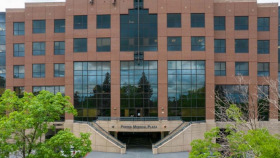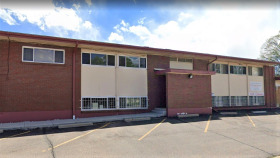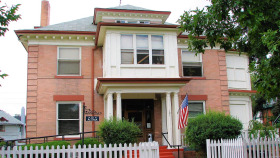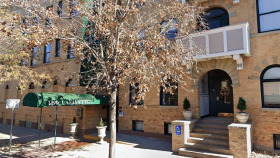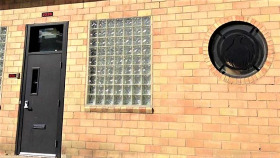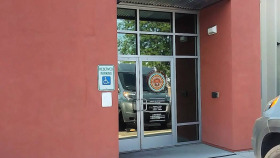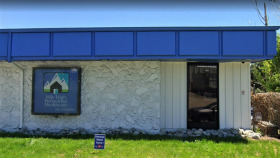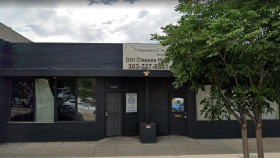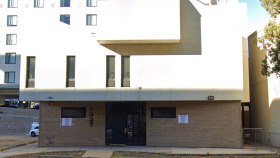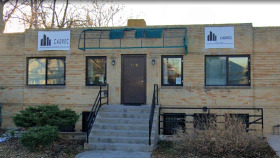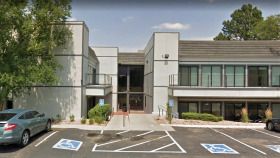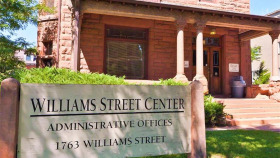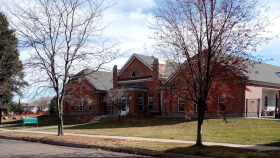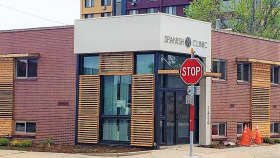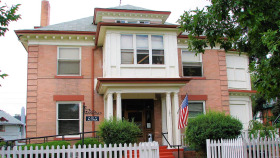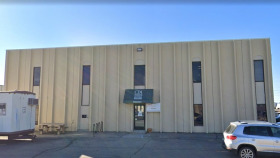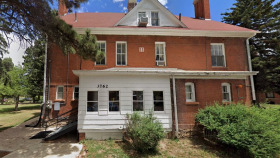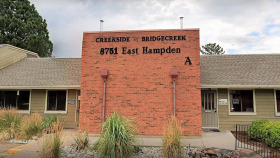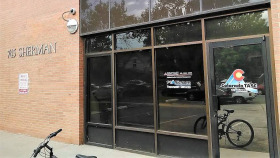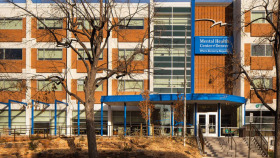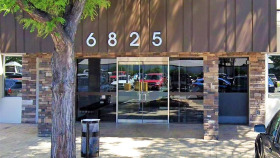Expert Insights
I recently learned that Colorado has a recovery high school in Denver, serving kids with substance use disorders. I think it’s a brilliant idea that someone who has recovered from addiction is now the director of recovery at 5280 High School. He’ll have the lived experience necessary to be able to tell students his own experiences of addiction. I believe there is great power in the words “me too,” because you feel like you’re not alone. Had I experienced a mentor like that in school I don’t think my addiction would’ve gotten so bad or lasted until my 30s, when I eventually hit a rock bottom. These kids have a new lease of life before the real damage of addiction takes hold and I think that’s a really great thing!
~ Olivia Pennelle
How Expensive is Drug Rehab in Denver?
When it comes to price, many factors can affect the cost of addiction treatment in Denver. These can include:
Type of rehabilitation
Amenities offered at the facility
Length of your stay
Facility of your choice
In the state of Colorado:3
The average cost of an inpatient or residential program was $56,413 per individual.
The average cost of an outpatient program was $1,705 in 2016.
However, your care may be far cheaper than these averages, especially if you have insurance or are able to find a state-funded drug rehab in Denver.
Are There Low-Cost and Free Drug Rehab Centers in Denver?
Many low-cost and free addiction treatment centers are available in Denver. These programs are for individuals who have no income or low income and are unable to afford the cost.
Facilities that are funded by the state use government money to help pay for services for those who need it but don’t have the income or insurance to pay.
If you do have insurance, it can greatly reduce the cost. According to the Affordable Care Act and the Mental Health Parity and Addiction Equity Act (MHPAEA) of 2008, health insurers and group health plans must cover mental health and substance use programs.
How Do You Pay for Addiction Treatment in Denver?
If the free clinics in Denver are full or you don’t have insurance, you still have alternatives:
Choose a Program That Offers Payment Plans
When it comes to paying for care, some alcohol and drug rehabs in Denver offer payment plans. Payment plans are an easy way to get the services you need without having to have the money to pay the upfront costs.
Apply for a Scholarship
A scholarship is a financial award that pays for your treatment. These scholarships usually do not have to be paid back. If you don’t have the financial means, these scholarships can be given to you. They can pay for the full cost or help fill in any gaps in funding from your insurance.
Find a Sliding-Scale Program
A sliding-scale fee is a payment method that many programs employ. This type of payment option often involves offering you a flexible fee schedule in which your payment would change based on your ability to pay. To qualify for a sliding-scale payment, the facility will request your income and examine it against a fee scale typically set by the clinic.
How Does Denver Compare in Alcohol and Drug Use?
Denver, Colorado, is home to more than 750,000 residents, making it the 19th-most populous city in the United States.1 In 2020, 1,477 Coloradans died of drug overdoses – the most overdose deaths ever recorded in the state. Fentanyl overdoses have become more common as well, more than doubling between 2019 and 2020 and increasing by 10 times since 2016.2 Even though drug overdoses are on the rise, there are over 170 accredited drug rehab centers in Denver and the surrounding area working to combat the problem.

14.1% (approximately 83,000) of young adults aged 18 to 25 had an illicit drug use disorder over the past year

5.4% (approximately 259,000) of individuals aged 12 or older had an illicit drug use disorder over the past year

Alcohol use disorder among those aged 12 and older was at 8.5% (approximately 407,000 people)
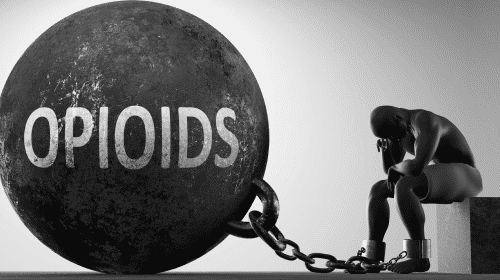
Among those age 12 and older, opioid use disorder averaged 5.3% (approximately 274,000 people).1
In Denver, of those suffering from substance use disorders, 77% used heroin, 70% used methamphetamines, and 83% used more than one drug.2
Alcohol and Drug Laws in Colorado
If you are caught with or using drugs and/or alcohol illegally in Denver, the legal system will determine the outcome of your case. In Denver, it is considered a misdemeanor if you are caught with a small amount of certain drugs like heroin, fentanyl, or cocaine. A conviction can result in jail time from 6 to 18 months and a monetary fine.
Driving while under the influence of alcohol in Denver can result in the suspension of your driver’s license, jail or prison for up to six years, public service requirements, and fines. In some cases, a portion of your jail sentence can be suspended if you agree to go through an alcohol rehabilitation program.
911 Good Samaritan Law
This law states that a person is immune from criminal prosecution for an offense when they report an emergency overdose. This includes Colorado residents who call 911 or remain at the scene of the event and the person who experienced the overdose.
Naloxone Standing Orders
Enacted in 2015, this law allows licensed prescribers to provide Naloxone to Colorado residents who may experience an opioid overdose, even without a prescription. The goal is to increase access to this overdose antidote and reduce the number of overdose deaths.
Needle-Stick Prevention
This law allows police officers to make an exception to arrest and charges for the crime of possession of drug paraphernalia if the Colorado resident informs the officer that they have a needle, syringe, or other sharp objects on their person or in their home or vehicle—prior to being searched.
Syringe Exchange Programs
In Colorado, nonprofits and health facilities can operate a syringe exchange program without prior board of health approval. Organizations and participants in these are also exempt from paraphernalia laws.
Marijuana Laws
Colorado legalized recreational marijuana in 2012. Adults at least 21 years old may buy up to 1 ounce of retail marijuana from a licensed store and possess up to 2 ounces at a time. It is illegal to drive in Colorado after consuming marijuana. State law sets the impairment level for marijuana at 5 nanograms of THC per milliliter of blood.
Choosing the Right Level of Care
The best level of substance abuse treatment will vary based on your individual needs. Here are the different levels of care provided to meet those needs.
Medical Detox
This process is often referred to simply as detox. It involves safely and comfortably removing drugs or alcohol from your system. This process will take place under supervision, usually in a hospital or inpatient facility.
Inpatient
In an Inpatient program, you will be supervised 24/7 while you live at a facility. Methods of treatment typically include group and individual therapy and may also involve medication and other forms of therapy.
Partial hospitalization programs (PHPs)
PHPs usually involve many of the same methods as inpatient care, but instead of living in a facility during the program, you live at home. You only stay at the facility during treatment hours.
Intensive Outpatient
IOPs offer a step down in supervision from a PHP. You can still expect several hours of counseling throughout the week while you spend the rest of your time fulfilling work, school, or home obligations.
Standard Outpatient
Standard outpatient care will take place with minimal supervision, with just one to two hours of care per week. Highly-motivated people with a strong support system tend to find this level beneficial.
Aftercare
Relapse prevention, also known as aftercare, begins after you complete a program. This ongoing support may involve continued therapy and 12-step groups.
Finding Specialized Drug Rehabs in Denver
Many types of alcohol and drug rehab centers in Denver offer help based on varying principles, approaches, styles, and clients. These facilities provide a wide range of services, from holistic and executive centers to faith-based and luxury programs.
Holistic
Holistic clinics use both conventional and alternative therapies as a tool on your road to long-term recovery. Some of the therapies offered in a holistic program include meditation, expressive therapy, art therapy, acupuncture, osteopathic treatments, and spiritual and/or religious interventions.
Christian and Faith-Based
Christian and faith-based programs use God and faith as a central theme of the recovery process. These often incorporate Christian and faith-based teachings into the treatment model. Ordained ministers have created or facilitated some faith-based plans to help you explore and strengthen your connection with God or a higher power on your road to recovery.
Luxury
Luxury centers make a special effort to provide extravagant and comfortable accommodations when it comes to starting your journey to long-term recovery. Luxury centers offer deluxe amenities like private bedrooms and bathrooms, activities like yoga and acupuncture, and even therapies that may be individualized to your specific needs.
Executive
An executive option may be for you if you work in a high-ranking position like a chief executive officer (CEO), chief operating officer (COO), or chief financial officer (CFO). Although traditional clinics usually limit or prevent access to outside influences through phones and computers, executive programs realize that your role in your company requires you to be active and available through these platforms.
Dual Diagnosis
Some centers in Denver offer a dual diagnosis program. These work to provide care to individuals who have been diagnosed with both a substance use disorder and a mental illness such as anxiety, depression, or bipolar disorder.
What Are The Types of Addiction Therapy Used in Rehab?
Many effective and evidence-based therapies are available when it comes to addiction treatment. These therapies have a wide range of effectiveness and are used based on what your professional decides is best for you.
Cognitive Behavioral Therapy
Cognitive behavioral therapy (CBT) helps you find the relationship between your emotions, thoughts, and actions. The goal of CBT is to help you change your thinking patterns so that you can gain problem-solving skills and a greater sense of confidence in yourself. CBT helps you understand how your feelings and actions contribute to your recovery.
Dialectical Behavior Therapy
Dialectical behavior therapy (DBT) helps you accept uncomfortable feelings through validation and mindfulness. DBT helps you change negative behaviors. DBT also focuses on emotional regulation and is often used for individuals who also suffer from depression or anxiety.
Motivational Enhancement Therapy
Motivational enhancement therapy (MET) helps create an internal motivation to help you stay engaged in a program and stop using substances other than prescribed and misusing alcohol. MET helps you to strengthen your emotions while at the same time helping you develop a plan that leads to positive changes.
Contingency Management
Contingency management is a type of therapy in which positive behavioral changes are reinforced or rewarded. Often, this treatment involves a monetary reward or gift card given to an individual for having a negative drug urine screening. Contingency management involves conditioning your brain to see abstaining from non-prescribed substances and misusing alcohol as more rewarding than partaking of those substances.
Group Therapy
Group therapy often involves a trained group leader and more than one person. If you participate in group therapy, you will usually be participating with other individuals with whom you are not related. You will often have your first interactions with your other group members during your initial group therapy session. In group therapy, you will receive education, support, and motivation from your peers as you move toward long-term recovery.
Family Therapy
Family therapy involves interventions that include the entire family. This often includes assessing interactions between you and your family members and changing negative interaction patterns. In family therapy, your therapist will help you and your family explore the dynamics behind your actions and offer support and tools to help you move closer toward recovery.
Should You Travel for Drug and Alcohol Rehab in Denver?
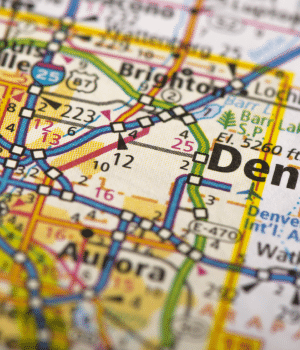 You may be wondering if you should consider traveling to Denver for addiction treatment. There are many high-quality facilities and detox centers in Denver with expansive offerings to fit your individual needs.
You may be wondering if you should consider traveling to Denver for addiction treatment. There are many high-quality facilities and detox centers in Denver with expansive offerings to fit your individual needs.
To determine whether you should travel to Denver, you should consider whether you have the financial means to travel, whether leaving your current environment would negatively impact your alcohol and/or drug use, and if you have a support system to assist you once you return home.
Resources
- Denver, Colorado Population 2020 (Demographics, Maps, Graphs). (n.d.). Worldpopulationreview.com.
- Vital Statistics Program | Department of Public Health & Environment. (n.d.). Cdphe.colorado.gov.
- (2020). Substance Abuse and Mental Health Services Administration. Behavioral Health Barometer: Colorado, Volume 6: Indicators as measured through the 2019 National Survey on Drug Use and Health and the National Survey of Substance Abuse Treatment Services. [Ebook] (6th ed.).
- Denver Environmental Health. (2017). Needs Assessment on Opioid Use.
- National Center for Drug Abuse Statistics. (n.d.). Average Cost of Drug Rehab: by Type, State & More.
- Di Lorenzo, R., Galliani, A., Ferri, P., Landi, G., & Guicciardi, A. (2014). A retrospective analysis focusing on a group of patients with dual diagnosis treated by both mental health and substance use services. Neuropsychiatric Disease And Treatment, 1479.
- Substance Abuse and Mental Health Services Administration. (2019). Key Substance Use and Mental Health Indicators in the United States: Results from 2019 National Surgery on Drug Use and Health [Ebook].
- Quello, S., Brady, K., & Sonne, S. (2005). Mood Disorders and Substance Use Disorder: A Complex Comorbidity. Science & Practice Perspectives, 3(1), 13-21.
- Bushnell, G. A., Gaynes, B. N., Compton, S. N., Dusetzina, S. B., Olfson, M., & Stürmer, T. (2019). Incident Substance Use Disorder Following Anxiety Disorder in Privately Insured Youth. The Journal of Adolescent Health: Official Publication of the Society for Adolescent Medicine, 65(4), 536-542.
- Brady, K. T., Haynes, L. F., Hartwell, K. J., & Killeen, T. K. (2013). Substance use disorders and anxiety: a treatment challenge for social workers. Social Work in Public Health, 28(3-4), 407-423.
- U.S. Department of Veterans Affairs. (2022). Veterans Affairs. ptsd.va.gov.
- Parmar, A., & Kaloiya, G. (2018). Comorbidity of Personality Disorder among Substance Use Disorder Patients: A Narrative Review. Indian Journal of Psychological Medicine, 40(6), 517-527.

